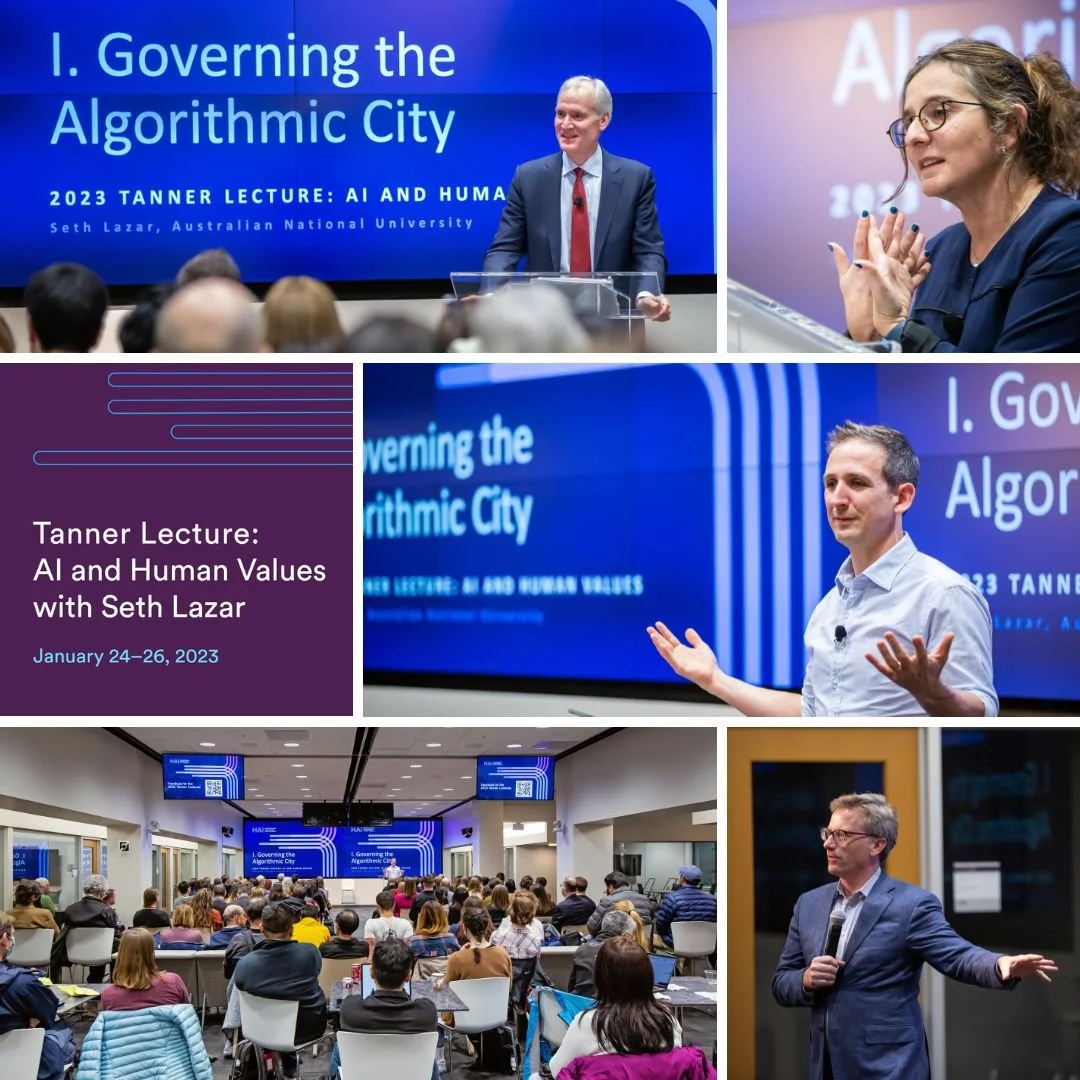Tanner Lectures: AI and Human Values with Seth Lazar
On January 26th and 27th, Professor Seth Lazar gave the Tanner Lectures on AI and Human Values, at Stanford University. The event was co-hosted by Stanford’s Institute for Human-Centered AI, and the McCoy Family Center for Ethics in Society.
In the first lecture, ‘Governing the Algorithmic City', Lazar outlines some urgent issues concerning the new ‘algorithmic intermediaries’ that govern more and more of our lives. The companies and platforms that make up these algorithmic intermediaries are interesting in part because of how they reshape social relations. Through their exercise of intermediary power, these algorithmic intermediaries constitute the relationships that they mediate. Lazar asks whether and how algorithmic intermediary power can be exercised permissibly, and argues that this is an area where political philosophy ought to be helpful—as it is primarily concerned with how we can successfully live together—but to be helpful, it must recognise the distinctive power at issue here. He argues that questions concerning concepts like authority, procedural legitimacy, and justificatory neutrality must be considered anew (and soon).
In the second lecture, 'Communicative Justice and the Distribution of Attention', Lazar argues that algorithmic intermediaries govern the digital public sphere. They do so via three main mechanisms, namely, their architectures, amplification algorithms, and moderation practices. But the many problems present in our digital public square suggest these intermediaries could govern better. But what ideals should they aim at? Lazar suggests that existing political philosophy is not so helpful here, partly because its typical focus is on setting boundaries on our speech, and assumes the (digital) public sphere will emerge spontaneously. (As experience shows, this is not always the case.) To make progress on this topic, Lazar distinguishes expressive interests from communicative interests, and argues we need an account of communicative justice to adjudicate the tradeoffs that must be decided here. That is, what we need to know now is how to shape this public sphere intentionally, and to do so in a just way based on our individual and collective communicative interests. He outlines a number of governance tasks that platforms are inevitably responsible for discharging, and introduces a democratic egalitarian theory of communicative justice that could guide us in these tasks.
Marion Fourcade, Professor of Sociology at University of California-Berkeley, gave comments on the first lecture, and Arvind Narayanan, Professor of Computer Science at Princeton, provided comments on the second.
The lectures (as well as the commentaries) can be viewed at the HAI's website. And handouts for each lecture are available here.

